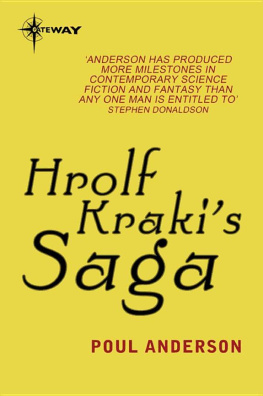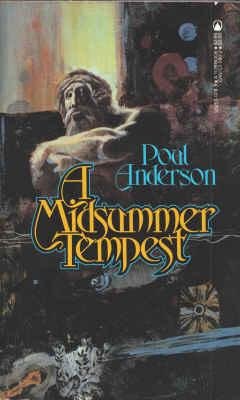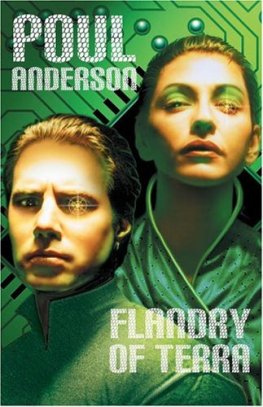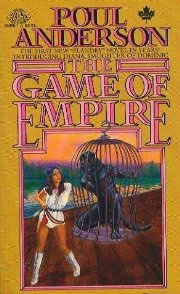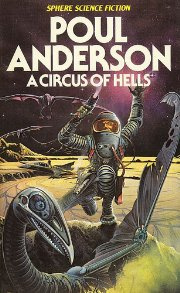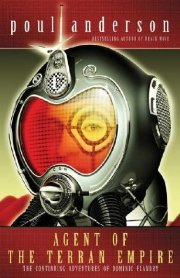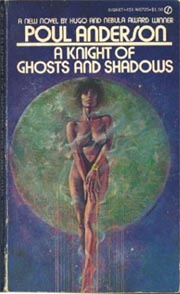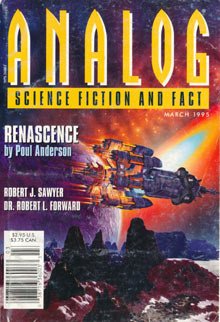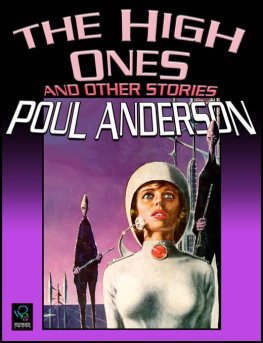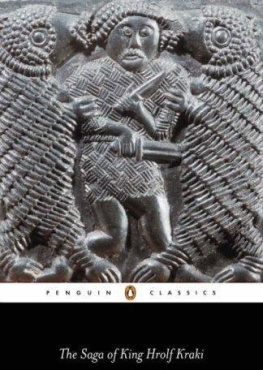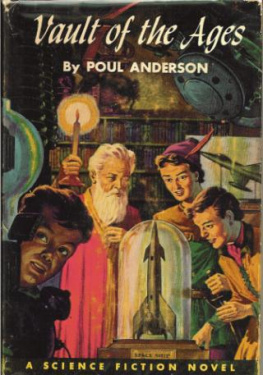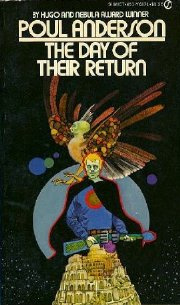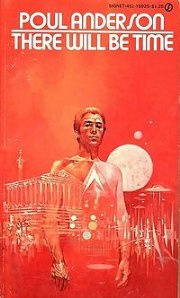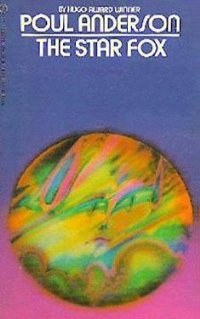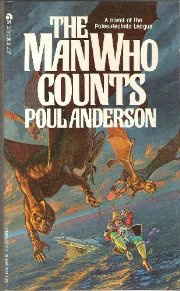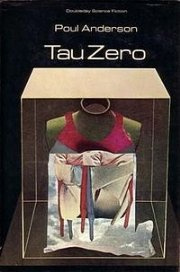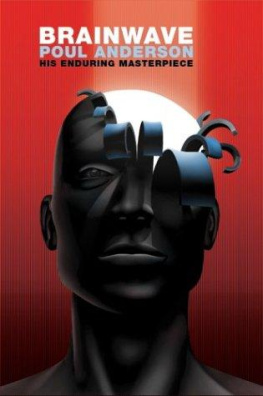Poul Anderson - Hrolf Krakis Saga
Here you can read online Poul Anderson - Hrolf Krakis Saga full text of the book (entire story) in english for free. Download pdf and epub, get meaning, cover and reviews about this ebook. year: 1977, publisher: Ballantine Books, genre: Art. Description of the work, (preface) as well as reviews are available. Best literature library LitArk.com created for fans of good reading and offers a wide selection of genres:
Romance novel
Science fiction
Adventure
Detective
Science
History
Home and family
Prose
Art
Politics
Computer
Non-fiction
Religion
Business
Children
Humor
Choose a favorite category and find really read worthwhile books. Enjoy immersion in the world of imagination, feel the emotions of the characters or learn something new for yourself, make an fascinating discovery.
- Book:Hrolf Krakis Saga
- Author:
- Publisher:Ballantine Books
- Genre:
- Year:1977
- Rating:5 / 5
- Favourites:Add to favourites
- Your mark:
- 100
- 1
- 2
- 3
- 4
- 5
Hrolf Krakis Saga: summary, description and annotation
We offer to read an annotation, description, summary or preface (depends on what the author of the book "Hrolf Krakis Saga" wrote himself). If you haven't found the necessary information about the book — write in the comments, we will try to find it.
Hrolf Krakis Saga — read online for free the complete book (whole text) full work
Below is the text of the book, divided by pages. System saving the place of the last page read, allows you to conveniently read the book "Hrolf Krakis Saga" online for free, without having to search again every time where you left off. Put a bookmark, and you can go to the page where you finished reading at any time.
Font size:
Interval:
Bookmark:
THE PROPHECY OF AN ELF MAID ...
"So, you have had your will, King. Know, we got a child together. When you took me in, I wished you well; and I do not yet wish you ill. Do as I say, and it may be we can still halt the bad luck you have sown in my womb.
"Our child," she continued, "must be born mv dersea; for mine is the blood of Ran. Be down by your boathouses this time next winter, and look for her." Pain crossed her mouth. "If you fail, the Skjoldungs will suffer."
But as the seasons went by, the king forgot what his elf-love had asked of him. Indeed, she seemed so strange to everything else he knew, he sometimes wondered if she had been a dream.
But she had not been a dreamand what she had augured would most tragically come to pass.
Also by Paid Anderson published by Ballantine Boo\s:
BRAIN WAVE THE BROKEN SWORD FIRE TIME A MIDSUMMER TEMPEST
HROLF KRAKES SAGA
A Del Rey Book
BALLANTINE BOOKS NEW YORK
Poul Anderson
To my favorite Finnish spellbinders Chelsea Quinn Yarbro and Emil Petaja
A Del Rey Book
Published by Ballantine Books
Copyright 1973 by Poul Anderson
All rights reserved under International and Pan-American Copyright Conventions. Published in the United States by Ballantine Books, a division of Random House, Inc., New York, and simultaneously in Canada by Ballantine Books of Canada, Ltd., Toronto, Canada.
ISBN 0-345-25846-0
Manufactured in the United States of America
First Edition: October 1973 Second Printing: July 1977
Cover art by Darrell Sweet
THE HISTORY OF HROLF KRAKI: Foreword by Poul Anderson
A book should speak for itself. But since this is not a modem fantasy, you the reader may like to know its background.
In contrast to the Volsungasaga, whose core is a story from the Rhineland, the cycle of Hrolf Kraki and his heroes is purely Northern. Once it was widely known and many-branched, deep in the souls and the songs of the folk. But it did not have the same good luck as the tale of Sigmund, Sigurdh Fafnir's-Bane, Brynhild, and Gudhrun: to get a sinewy prose narrative and to inspire poems which have survived in their entirety. Hence, today it is nearly forgotten. It deserves to be remembered anew.
The germ of it is close in age to that of the Nibelungenlied and contemporary with Beowulf. In fact, it and the latter throw a great deal of light on each other and include a number of the same people. The most conspicuous example is King Hrothgar, whose hall Beowulf rid of the monsters. In the homeland version he is Hrolfs uncle Hroar. Enough additional identifications have been made to leave no doubt.
Now this can be dated rather closely. Gregory of Tours, in his History of the Franks, mentions a Danish kingwhom a slightly later chronicle calls GeatishChochuaicus, who fell in the course of a massive raid on Holland. He has to be that lord whom Beowulf calls Hygelac and Hrolf (and certain other Northern remnants) Hugleik. On that basis, we can say with reasonable confidence that he was indeed a Geat. We are not sure whether this people lived in Jutland or the Gotaland part of Sweden, then an independent kingdom. I think the second is more likely. In any case, since that leader was real, no doubt others were whose names loom far larger in tradition: such as Beowulf and Hrolf themselves.
Hugleik died between 512 and 520 A.D. Thus Hrolf flourished two or three decades later. This was during the Volkerwanderung period, when Rome had gone under and the Germanic tribes were on the move, as wild a time as the world has ever seen. We can understand why Hrolf Kraki was gloriously remembered, why the saga tellers generation by generation brought every hero they could to his court, even if this meant giving less and less of the cycle to the king himself. His reign wasby comparison, anyhow; in story, at least a moment of sunshine during a storm which raged for centuries. He became to the North what Arthur did to Britain and Charlemagne, afterward, to France. On the morning of Stiklestad, five hundred years later and away off in Norway, the men of King Olaf the Saint were wakened by a skald who chanted aloud a Bjarkamaal: one of those lays wherein the warriors of the pagan Dane-King Hrolf were called to their last battle.
Fragments of it have come down to us. We know also the Bjarkarimur, a different and late set of verses. In his chronicle of Danish legend and history, the monk Saxo Grammaticus (c. 1150-1206) gives still another poem, in a long Latin paraphrase from which we can only attempt to reconstruct the original. (A sample is in Chapter I of "The Tale of Skuld," and some other parts have been worked into a form more in period for Chapters II and III.) This bookwhich likewise includes the oldest extant account of Hamlettells the story of Hrolf. In addition we find mention of it in Snorri Sturlason's Younger Edda and Heinlinskringla, the synopsized Skjoidunga-saga, and scattered references elsewhere. The principal sources are a few Icelandic manuscripts devoted wholly to the legend. Unfortunately, no copy of these is from before c. 1650, and both the style and the logic leave something to be desired.
AH the sources contradict each other, and occasionally themselves, on various points. Moreover, they are too sparse, leave too much unexplained, for the modern reader who is not a specialist in the early North.
I have long wanted to make a reconstruction, if not the reconstruction: put together the best parts, fill in the gaps, use the old words where they seem right and otherwise find new ones. My gratitude is great to Ian and Betty Ballantine and to Lin Carter for this chance to try.
Many such choices and suppositions must be controversial, or sheerly arbitrary. However, we can leave to scholars the pleasant pastime of arguing over details. To me, the most important questions turned on how the narrative might be made enjoyable to read while staying faithful to its originals.
For instance, from my viewpoint and doubtless yours, too many names begin with H- and even Hr-. I did not feel free to change this, unless one of the sources gave an alternative; but I have tried to write so as to minimize the chance of confusion. For similar reasons I have used modem place names throughout, generally the English versions, except for territories like Svithjodh which no longer exist.
A greater hazard lies in the very spirit of the saga. Here is no Lord of the Rings, work of a civilized, Christian author though probably it was one of Tolkien's many wellsprings. Hrolf Kraki lived in the midnight of the Dark Ages. Slaughter, slavery, robbery, rape, torture, heathen rites bloody or obscene, were parts of daily life. Finns in particular will note the brutality and superstition to which the Scandinavians subjected their harmless people.* Love, loyalty, honesty beyond the most niggling technicalities, were only for one's kindred, chieftain, and closest friends. The rest of mankind were foe-men or prey. And often anger or treachery broke what bonds there had been.
Adam Oehlenschlager, writing in the Romantic era, could sentimentalize Helgi, Hroar, and Hrolf. I would not. If nothing else, we today need a reminder that we must never take civilization for granted.
I hope you will bear with that, as well as the necessarily sprawling character of the tale and what we today feel as a lack of psychological depth. The latter merely reflects how those folk thought of themselves. To us, their behavior seems insanely egoistic; but to them, each was first a member of his family and only secondhowever greedy for wealth or fame himself. The hero is no one of them, but rather the blood of Skjold the Sheaf-Child, which coursed through many different hearts.
I felt obliged to give you some idea of how those lives and that society worked. Yet my aim was not at a hypothetical historical reality, but a myth. Therefore I have put the narrative in the mouth of a person in tenth-century England, when the cycle would have reached its full developmenta woman, who would be less likely than a man to use the spare saga style. Of course, she brings in not just the supernatural, but numerous anachronisms. The Scandinavia she describes is, in most respects, the one she herself knows.
Font size:
Interval:
Bookmark:
Similar books «Hrolf Krakis Saga»
Look at similar books to Hrolf Krakis Saga. We have selected literature similar in name and meaning in the hope of providing readers with more options to find new, interesting, not yet read works.
Discussion, reviews of the book Hrolf Krakis Saga and just readers' own opinions. Leave your comments, write what you think about the work, its meaning or the main characters. Specify what exactly you liked and what you didn't like, and why you think so.

